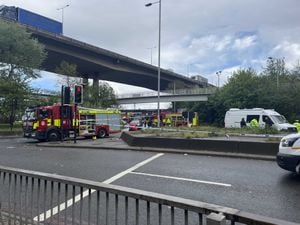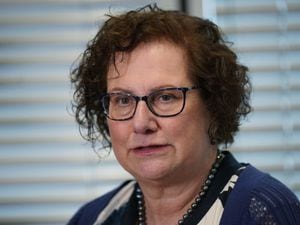Extradite Kurdish terrorists, Turkey’s president tells Theresa May
Recep Tayyip Erdogan has held talks with the Prime Minister in Downing Street.
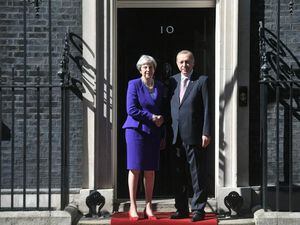
Turkey’s president has demanded Britain hand over people it regards as terrorists, during talks with Theresa May.
Recep Tayyip Erdogan said he wanted individuals connected with the Kurdish PKK organisation and the Feto network linked to exiled cleric Fethullah Gulen to be extradited and warned “what hurts me today will hurt the UK tomorrow”.
In a press conference in Downing Street, Mrs May hailed relations between the UK and Turkey as “indispensable” and set out plans for new security arrangements between the two nations.
The Prime Minister has been accused of cosying up to a totalitarian leader for economic reasons and the president’s visit was met by noisy protests.
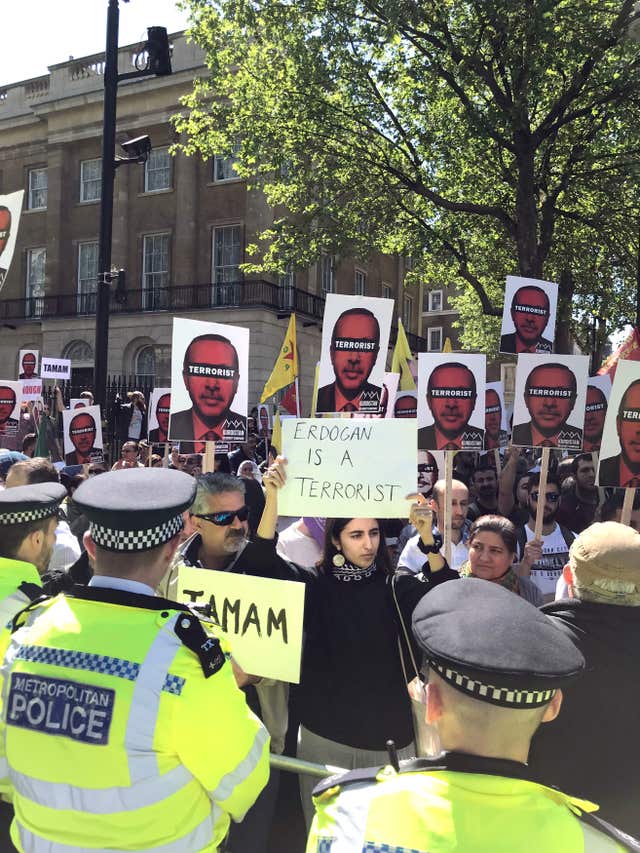
Mr Erdogan said: “Whether it be Feto or whether it be PKK, I have communicated a list of terrorists to Madame Prime Minister.
“We have demanded the extradition of those terrorists associated with PKK and Feto.
“We have to accomplish these targets so that we can jointly keep fighting terrorism, or else what hurts me today will hurt the UK tomorrow.
“We have to come to terms with this fact and we have to see this for what it is. On this issue we are highly sensitive.”
Mrs May said the UK takes action “where we have evidence of terrorist activity, of criminal activity”.
“I think you can see that in the action that has been taken against PKK here in the UK,” she added.
Mrs May said she had raised concerns with Mr Erdogan about the purge of his critics in the wake of the failed 2016 coup and urged him not to “lose sight” of democratic values.
Tens of thousands of opponents, including hundreds of journalists, have been locked up under his reign.
Mr Erdogan claimed many of the journalists were actually terrorists.
The PM said: “It is right that those who sought to overthrow the democratically elected government are brought to justice but it is also important that in the defence of democracy, which has been facing extraordinary pressures from the failed coup, instability across the border from Syria and from Kurdish terrorism, Turkey does not lose sight of the values it is seeking to defend.
“That is why today I have underlined to President Erdogan that we want to see democratic values and international human rights obligations upheld.”
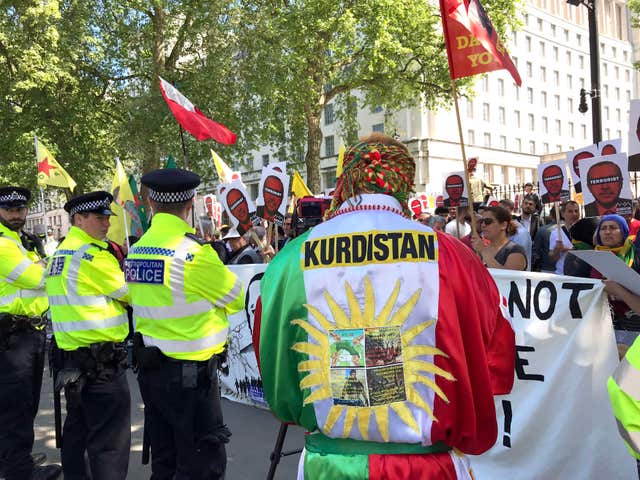
Information sharing about people being returned from Syria and Iraq will be formalised, she said.
Mrs May added: “Our intent is to agree that when Turkish authorities return a British citizen suspected of terrorist offences to Britain, they will do so with vital evidence, such as media taken from mobile devices and transcripts of interviews.
“This will support our efforts to secure the convictions of those who seek to do us harm.”
Cooperation and information sharing between Home Office and its Turkish counterpart will deepen, the PM added.
Mr Erdogan had earlier walked into Downing Street from the Foreign Office, avoiding noisy protests in Whitehall against his visit to Britain.
The Prime Minister shook hands and posed for photographs with Mr Erdogan outside No 10 as demonstrators opposed to his authoritarian rule audibly shouted slogans and waved placards on Whitehall.
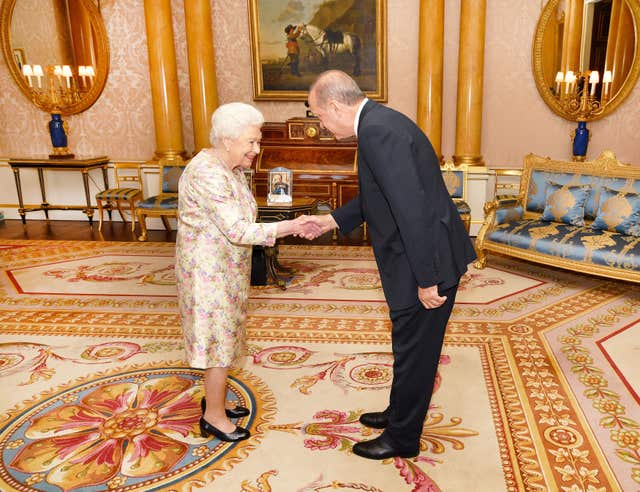
Demonstrators chanted “Turkish state, fascist state” through a public address system and waved banners opposite the gates to Downing Street branding Mr Erdogan a terrorist.



